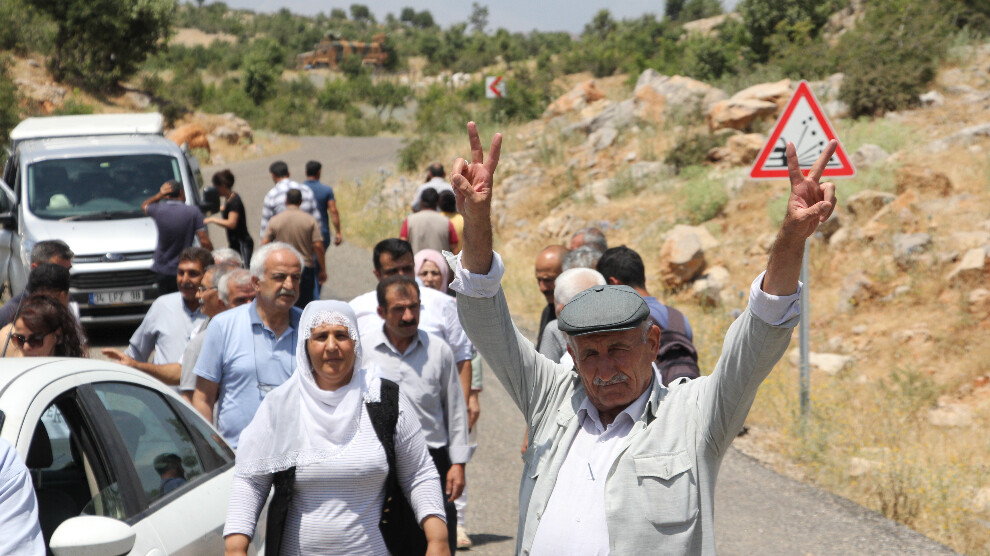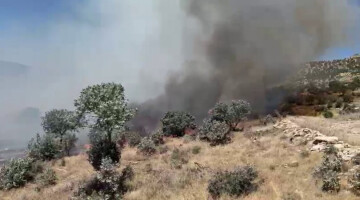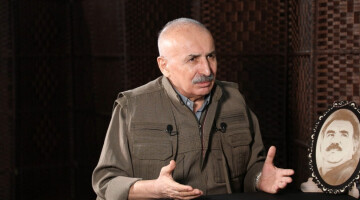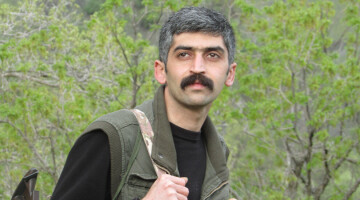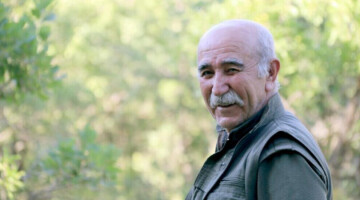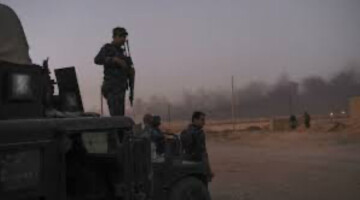The Islamic festival of sacrifice, Eid al-Adha, begins on Saturday. For the approximately 1.9 billion Muslims worldwide, it is the most important religious celebration alongside Eid al-Fitr at the end of the fasting month of Ramadan. The festival is meant to commemorate the willingness of the progenitor Abraham to sacrifice one of his sons to prove his faith to God. Traditionally, on the first morning, the visit to the mosque is concluded with a walk to the cemetery to commemorate the deceased relatives. In Kurdistan, the custom has changed to visiting the graves of those martyred in the armed liberation struggle for supplications on the eve of the Feast of Sacrifice.
In Amed (tr. Diyarbakır), the Solidarity Association with the Families of Martyrs (MEBYA-DER) invited people to visit on Friday the graveyards in the districts of Lice and Dicle, where the cemeteries of Sîsê, Çemê Elîka and Pîrêjman are located. But the Turkish army has prevented the grave visits. The entrances to the cemeteries were blocked by armoured vehicles. Military units carried out patrols on foot to prevent "unauthorised access".
"These are holy days that we are living through. The Feast of Sacrifice is the highest festival day in Islam. In periods like these, people who have had to cope with heavy losses want nothing more than to mourn and offer prayers at the graves of their loved ones. This is denied to us. It is brutal and inhumane, but for the rulers of this country it is a matter of course," said Meryem Soylu. The almost 80-year-old co-chair of MEBYA-DER was sentenced to many years in prison only last March for "membership of an armed terrorist organisation" because of her work in the (legal) organisation. As long as the sentence is not final, she does not have to go back to prison.
Soylu and her solidarity association were accompanied by members of the provincial associations of HDP and DBP, the prisoners' solidarity association TUAY-DER as well as mothers and fathers who lost their children in the Kurdish liberation struggle. Commenting on the military's de facto ban on going to the cemetery, politician Zeyyat Ceylan, who is co-chair of HDP Amed, said: "We are convinced that soon the rusty chain will no longer stand firm and will open the way to peace."

